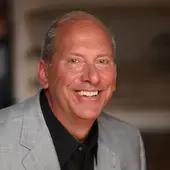By Bruce Helmer and Peg Webb, Financial Advisors at Wealth Enhancement and co-hosts of “Your Money” on WCCO AM 830 on Sunday mornings. Email Bruce and Peg at yourmoney@wealthenhancement.com. Advisory services offered through Wealth Enhancement Advisory Services, LLC, a registered investment advisor and affiliate of Wealth Enhancement Group.
Yesterday, Americans across the country celebrated Independence Day — a moment to reflect on the cherished freedoms we hold dear. But in addition to the parades and fireworks, there’s another kind of independence worth thinking about: financial independence.
While the Declaration of Independence famously enshrines the rights to “Life, Liberty, and the Pursuit of Happiness,” the original language that Jefferson drew from — the Virginia Declaration of Rights — offered something even more tangible: the “means of acquiring and possessing property.” In the 18th century, property ownership was directly tied to freedom. And in many ways, it still is.
In today’s world, financial independence means something a little different for each person. For some, it’s the ability to retire comfortably — or even early — and live off savings and investment income. For others, it’s about not becoming a financial burden to children later in life. And for many, it’s the freedom to make meaningful life decisions without money being the controlling factor.
Regardless of how it’s defined, financial independence boils down to one thing: choice.
When you’re financially independent, you get to decide how you spend your time — whether that means continuing to work, launching a passion project, helping family or traveling the world. You also gain the power to say “no” to jobs, situations, or relationships that no longer serve you.
The good news? Achieving financial independence isn’t about luck or extreme sacrifice. It comes down to a few key principles, applied consistently over time.
1. Save more than you spend
This may sound obvious, but it’s the foundation of all wealth-building. High earners who spend every dollar rarely build real freedom. On the flip side, a strong savings habit (ideally, 15–20% of your income) allows you to accumulate the assets that provide flexibility later in life.
Even small adjustments can help: increasing retirement contributions by 1% a year, eliminating lifestyle “creep” or automating savings into a separate account.
2. Spend in line with your values
Every financial decision reflects what you value. For example, if you earn $50 an hour and buy a $50,000 boat, that purchase cost you 1,000 work hours — nearly half a year of effort.
Now ask yourself: Was it worth it? Or could that money have gone toward something that matters more, such as spending more time with your kids, giving back or working towards future time freedom?
Intentional spending helps align your money with your priorities and speeds your path to independence.
3. Plan for the unexpected
Financial independence doesn’t mean you’re invincible. Life inevitably throws curveballs to us all: job losses, illness, major repairs. That’s why having an emergency fund of three to six months’ expenses is essential.
Start with what you can and build it over time. This safety net ensures that an unexpected event doesn’t derail years of progress toward financial independence.
4. Know your “independence number”
How much do you need to be financially independent? A common rule of thumb is to save 25 to 33 times your annual expenses. So, if you spend $100,000 a year, your financial independence target may be $2.5 to 3.3 million.
That might sound daunting, but keep in mind: this includes your investments, retirement accounts, real estate and other income sources. More important than the number is understanding how to turn those assets into reliable income over time.
5. Invest with intention
Your investments should support your goals over the short-, mid- and long-term. Your comprehensive plan needs to consider your cash needs, tax strategy, market volatility and diversification.
Working with a financial advisor can help build a “money matrix,” a planning tool that we regularly use to map income, expenses and investment vehicles to each client’s unique timeline and values.
True independence isn’t just about celebrating history. It’s about building a future on your own terms. Financial independence offers the freedom to choose your work, your lifestyle and your legacy.
Start by saving a little more, spending a little less and making decisions that reflect your highest values. Because in the end, the pursuit of happiness isn’t just a founding ideal — it’s a financial goal we can all work toward.
See the whole article in Pioneer Press.
The opinions voiced in this material are for general information only and are not intended to provide specific advice or recommendations for any individual.
#2025-8333

